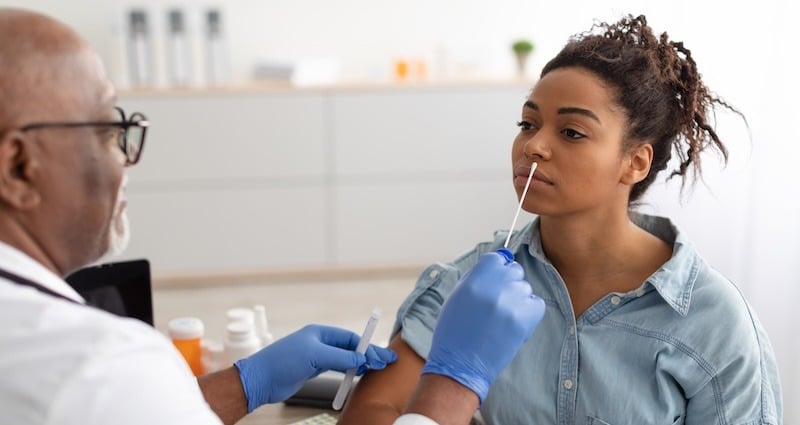
If you haven't yet heard of pharmacogenomics, you will soon enough.
Since 1949, May marks Mental Health Awareness Month. 43.8 million Americans—that's one in five—experience mental illness in a given year. Since these conditions are so prevalent, people around the country are encouraged to share information this month to help spread awareness so they can learn or help those in need. Pharmacogenomics was developed out of the same desire for positive change. The goal is simple: deliver better care for patients by prescribing the right medication and the right dose the first time.
What is Pharmacogenomics?
Pharmacogenomics is the study of how genes affect a person’s response to drugs. The field combines pharmacology (the science of drugs) and genomics (the study of genes and their functions) with an eye for developing medications and doses tailored to a person’s genetic makeup.
This is critical because drugs don't work the same way for everyone. Doctors can't always be sure when prescribing medication who will respond and who won't, or even whether these responses will be positive or have adverse drug effects. As of 2015, adverse drug reactions led to 44,693 deaths and 253,017 "serious" events in the United States. Pharmacogenomics intends to seriously decrease, if not eventually eliminate, adverse drug reactions by prescribing medications that are genetically suited for patients.
While the use of pharmacogenomics might be increasing, there are many limitations to consider. These tests are only available for certain medications and can only provide clues, not predict for certain, which particular medication will work best. To be accepted in the medical industry, these tests need to be consistent and validated, which is the greatest hurdle in direct-to-consumer genetic tests. But this developing science is well worth keeping an eye on as millions of lives could change for the better.
DNA Testing for Mental Illness
There are more than 50 psychiatric medications on the market for people with mental health disorders. Some of the illnesses they are prescribed for:-
Depression
-
Attention deficit/hyperactivity disorder (ADHD)
-
Post-traumatic stress disorder (PTSD)
-
Anxiety
-
Bipolar disorder
-
Schizophrenia
-
Major mood disorder (MMD)
Considering the myriad of medications, how do prescribers find the right drug and dose? Proponents of pharmacogenomics assert that almost all medications used to treat depression are metabolized by two enzymes in the liver. If you have too much of the enzyme, you can process a medication too quickly, where too little of the enzyme will cause the medication to build up in your bloodstream and maybe cause adverse reactions or side effects. Therefore, a person's genes can determine how a person will respond to a prescription drug.
The Test
A simple buccal swab can be used for testing. Buccal swabbing is fast, non-invasive, and high yielding. The sterile swab can be cotton, foam, or flock. Because of their superior collection and elution properties, flocked swabs are highly recommended for buccal cell collection. Puritan’s flocked swabs have a patented flocking pattern that collects more specimen within its propriety micro-channels than traditional swabs.
Here are a few of our top flocked DNA swabs:
The hope of pharmacogenomics companies is to help physicians get people on the right medications more quickly. And that would be a great big gain from a little swab of DNA.




